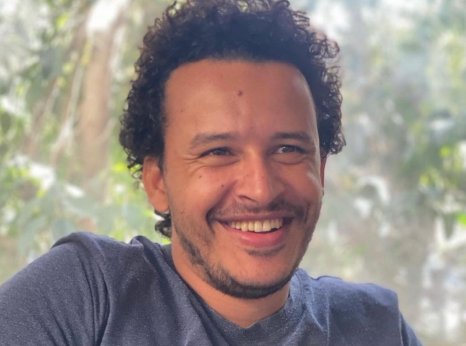Egypt: Protester Sentenced To Three Years In Jail

Security forces first arrested then 18-year-old Mahmoud Hussein on 25 January 2014, in the aftermath of protests marking the 3rd anniversary of the “25 January Revolution”. Security forces stopped him at a checkpoint in the neighbourhood of El-Marg, northern Cairo, when he was returning home on a bus from protests, and arbitrarily arrested him simply because he was wearing a T-shirt with the slogan “A Nation without Torture” and a scarf with the emblem of the January 25 Revolution. Amnesty International documented how, following his arrest in 2014, National Security Agency (NSA) officials subjected him to torture and other ill-treatment, including beatings and the use of electric shocks to his hands, back and testicles. As a result of the torture, he was forced to “confess” to belonging to a banned group, possessing Molotov cocktails and hand grenades, and participating in unauthorized protests, with his forced “confession” recorded on video. The day after he “confessed” on camera, Mahmoud Hussein was taken for questioning by the Supreme State Security Prosecution (SSSP). He denied all the accusations and said he had been tortured to “confess”, but the prosecutor did not refer him for forensic examination or order any investigation into his torture allegations. Mahmoud Hussein stayed in El-Marg police station for six days and was later transferred to Abu Zaabal Prison where he was beaten upon arrival. In May 2014, he was transferred to Cairo’s Tora Appeal Prison, where he was also subjected to beatings on at least two occasions. He was eventually transferred Cairo’s Tora Investigations Prison. He remained in pretrial detention under case number 715 of 2014 in El-Marg and was referred for trial on 31 January 2016. On 24 March 2016, he was released on bail of 1,000 Egyptian pounds. The torture and other ill-treatment to which he was subjected left him with chronic health concerns. After being released from prison, Mahmoud Hussein developed a dependency on a crutch for walking and had two hip replacement surgeries.
Mahmoud Hussein is currently held at El Marg police station, Cairo, in an overcrowded room with no beds or access to healthcare. In that police station, officials ban visits to all detainees.
Mahmoud Hussein’s renewed arrest came amid a wave of fresh arrests of critics and relatives of dissidents based abroad, including the fathers of Egyptian journalist Ahmed Gamal Ziada, based in Belgium, and German-Egyptian activist Fagr al-Adly, based in Germany; both arrested in August 2023. Mahmoud Hussein is among the thousands of individuals arbitrarily detained in Egypt solely for exercising their human rights or following proceedings violating fair trial rights or without legal basis. Those held include human rights defenders, political activists, members of opposition parties, trade unionists, workers, peaceful protesters, journalists, lawyers, social media influencers, members of religious minorities, and medical professionals. During 2023, 834 prisoners held for political reasons were released, but authorities arrested triple this number. The Supreme State Security Prosecution (SSSP) interrogated at least 2,504 suspected critics or opponents on accusations of involvement in terrorism-related offences, cybercrimes, protests and spreading “false news”. SSSP prosecutors and judges routinely renew pretrial detention orders for thousands of detainees without allowing them to meaningfully challenge the legality of their detention. Amnesty International has also documented how SSSP prosecutors routinely open investigations into new cases on similar bogus charges against individuals in detention in relation to separate cases. The practice, commonly referred to as “rotation”, allows for the indefinite detention of individuals who served their sentences, received release orders by courts or exceeded two years in pretrial detention, the maximum period permissible under Egyptian law.
Following his release from detention in 2016, Mahmoud Hussein tried to rebuild his life, opening a small business to produce T-Shirts, and had recently proposed to his girlfriend. He had also undergone medical treatment and was getting counselling.